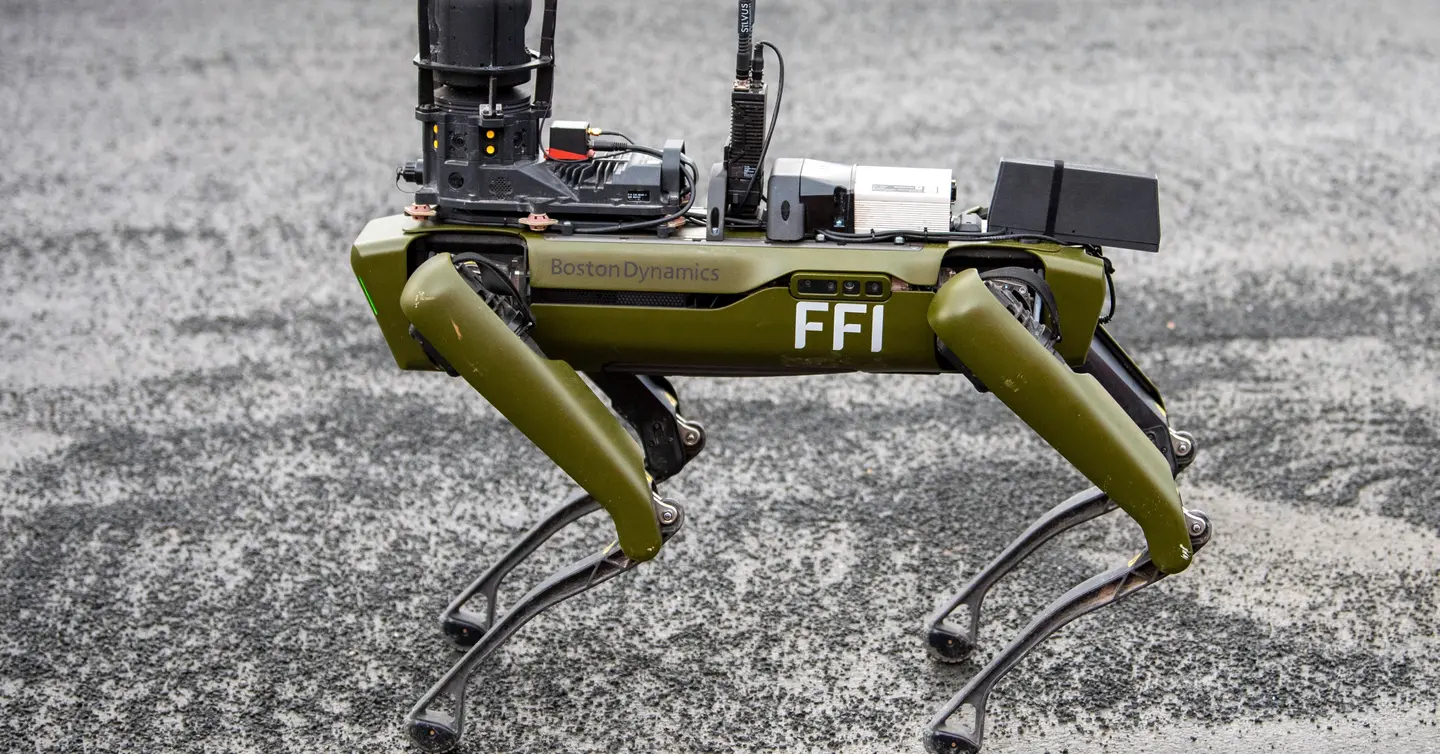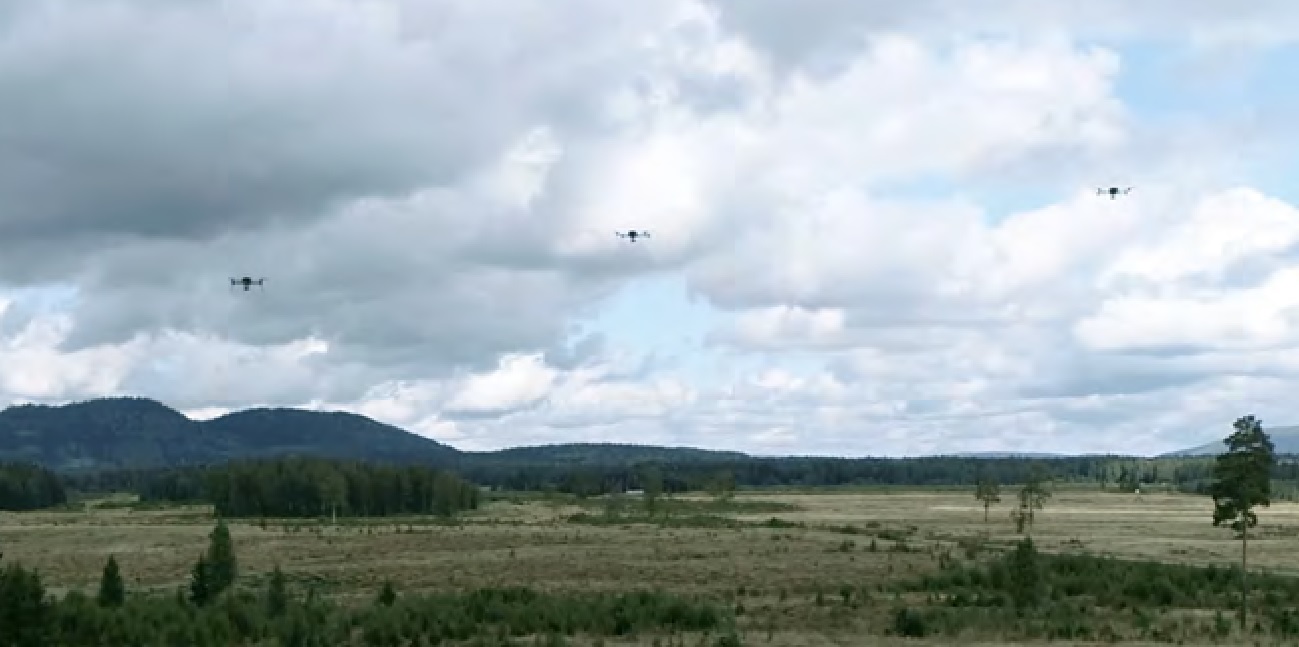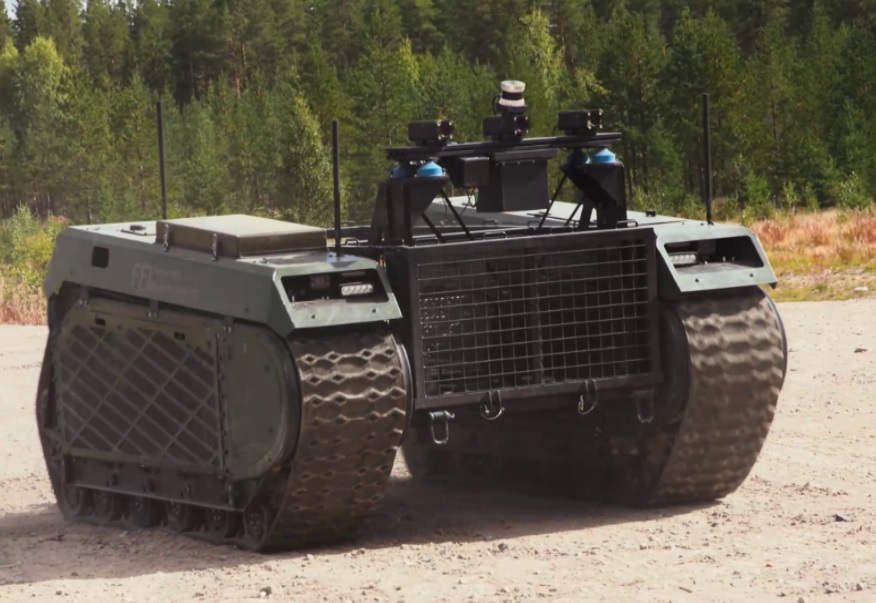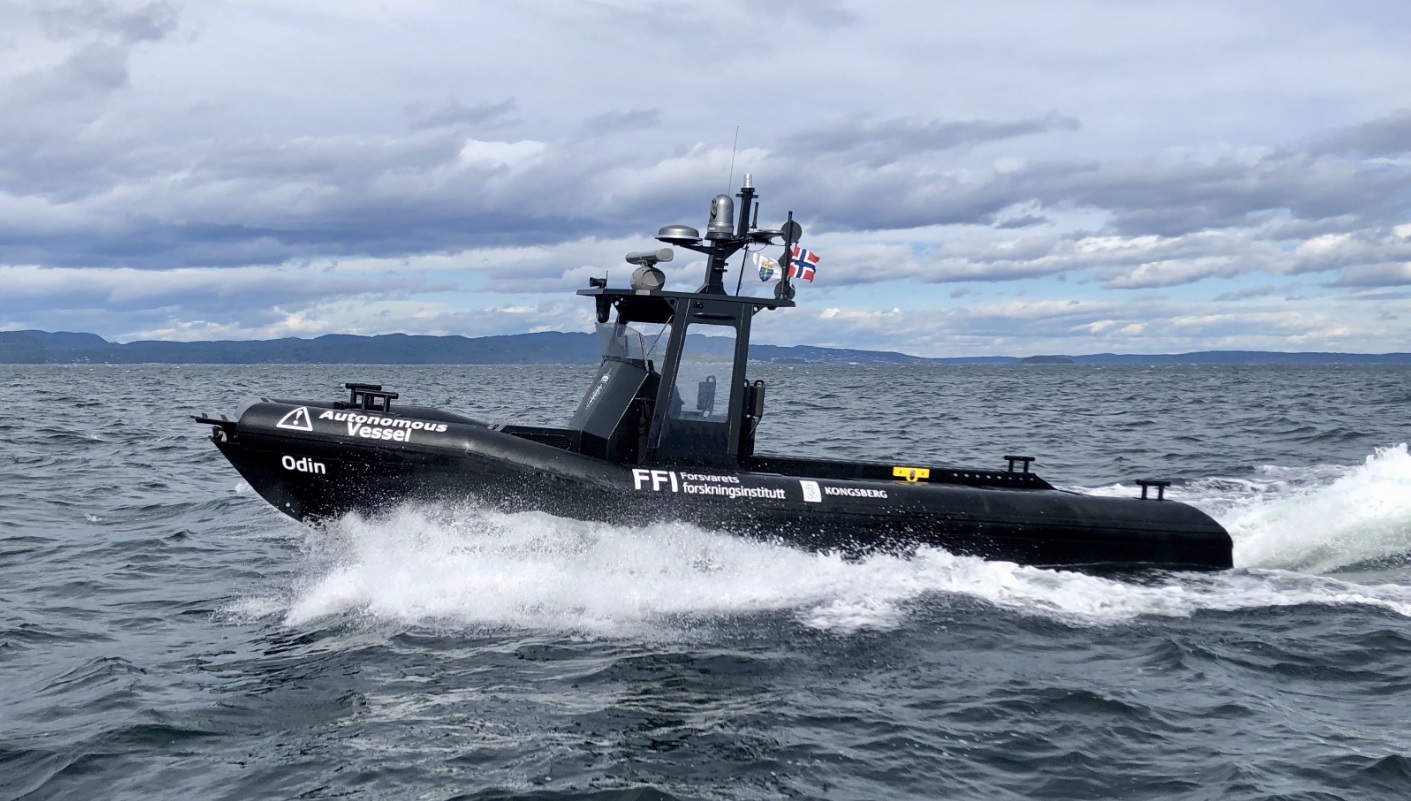FFI develops autonomy for unmanned vehicles in the air, land and sea. Autonomous vehicles can be more robust, solve tasks more efficiently, and be easier to control than existing solutions. FFI works in close collaboration with the Norwegian Armed Forces (Forsvaret) to look at operational concepts for future autonomous platforms.
Taking your master's thesis in collaboration with FFI requires that you are eligable for a Norwegian security clearance, and have a grade average at 3.5 or above on your university courses (calculator here).
Topic suggestions
Sensor processing and improved situational awareness
FFI's autonomous platforms have a wide range of sensors to comprehend and consider the real-world conditions they operate in when carrying out their missions.
Working with this often involves real-time processing of sensor data, utilizing machine learning methods in new ways, statistical state estimation based on sensor data, and data fusion from multiple sources. We typically work with boats, land vehicles, and swarms of drones, and have extensive experience with sensors like cameras, lidars, radars, and navigation sensors.
We can offer exciting tasks within the entire field of this research. You can choose to assist us in enhancing understanding through a theoretical assignment, or develop a method that can be executed and experimented with on our physical platforms.
Decision systems
In decision systems, the focus is on developing software that enables our different vehicles to make both high-level and low-level decisions. These decisions are based on the vehicles' characteristics, a priori and sensed models of the environment (e.g., maps), knowledge of other entities in the area, and the vehicle's objectives for the operation.
Our algorithms have traditionally been based on classical methods, but newer AI methods are used more and more. Examples include evolutionary optimization for vehicle modeling, and the use of deep neural networks for course control of an unmanned boat.
We have a broad range of interests, and there are numerous possibilities for master's thesis topics. Concrete examples of topics include route planning, trajectory planning, vehicle modeling, knowledge modeling, and high-level task planning (scheduling).
Route and trajectory planning
Route planning refers to the generation of coarse routes based on a priori map information. The goal of the route could be to transport from point A to B in an optimal way in regards to time consumption, energy usage, safety, or other factors.
Trajectory planning generates smooth, drivable paths based on sensed information with a much shorter time horizon. The goal is to design paths that avoid obstacles and minimize travel in hazardous or rough terrain, while still staying close to a coarse planned route. Other goals can include docking, maneuvering to achieve desired sensor performance, or picking up an autonomous underwater vehicle with an unmanned boat.
We offer tasks that expand our current graph- and map-based approaches, or you could try out new novel methods and compare to our current solutions. Both theoretical work in simulation and practical work on our physical platforms are possible.
Collaborative systems
FFI does research in multi-agent systems, both from a theoretical perspective and to develop new practical applications. Our goal is to study and understand continuous area surveillance using multifunctional RF, electro-optical, and acoustic sensors on board multi-robot systems. These systems can operate on land, in sea, or in the air.
Within this interdisciplinary research, we can offer tasks ranging from electronics-oriented studies in sensor technology to more theoretical analyses of artificial intelligence methods for optimizing multi-agent systems. We have specific proposals for master's theses, but we are also open to new ideas and other perspectives on research in multi-agent systems.
Physical platforms suitable for thesis work
Our researchers work on many platforms that are suitable for thesis work:
The "Freke" four-legged robot

Our robot "Freke" is a Spot robot from Boston dynamics, and provides an off the shelf platform with advanced mobility and perception. This means that you as master students can use a cutting edge robot without having to worry about all the low level control that often gets in the way of efficient research. It carries 14kg and operates about an hour on one battery. It has mostly been used outside, but we are also interested in indoor applications.
The "Valkyrie" drone swarm

Valkyrie is the swarm system developed for autonomy research at FFI. The system consists of several drones and a control station that visualizes sensor information and flight statistics. The sensor data can be redirected to other systems, and the swarm can receive external commands to solve a range of different tasks. There is a simulated version of the system that enables quick development and prototyping, but the ultimate goal of a thesis should include testing on the physical swarm.
The "Tor" and "Siv" tracked vehicles

The "Tor" unmanned ground vehicle is a THeMIS from Milrem, and FFI has added a range of sensors and on-board computation capabilities to run their autonomy suite. The goal is for the platform to be able to navigate through the forest without human intervention, but there are many challenges to solve before this is achieved.
The "Odin" and "Frigg" autonomous boats

FFI has done extensive work on unmanned surface vehicles, and have two boats used as test platforms. One of the main applications is mine countermeasure operations, but there are many exciting thesis opportunities, both practical and more theoretical.